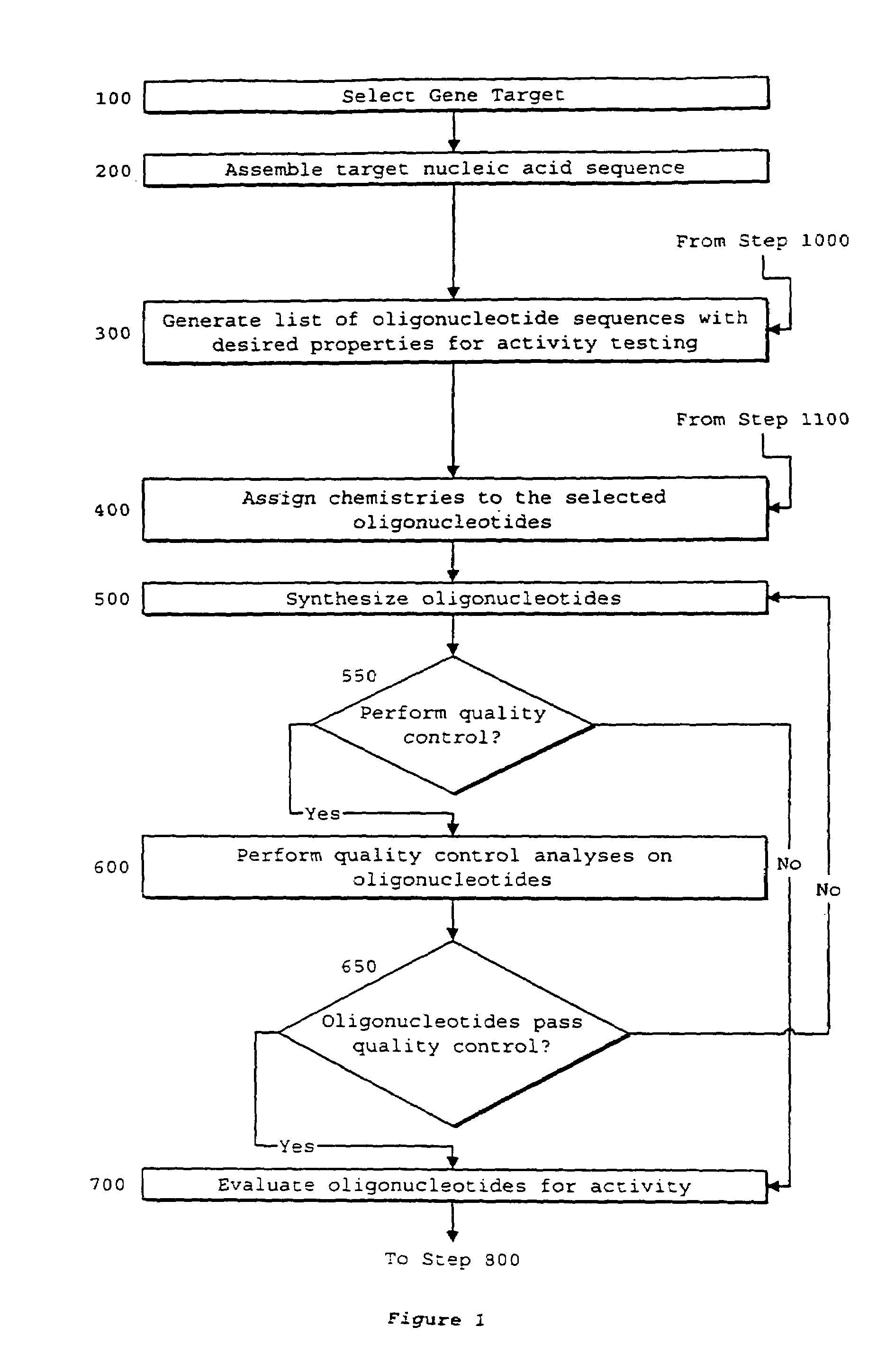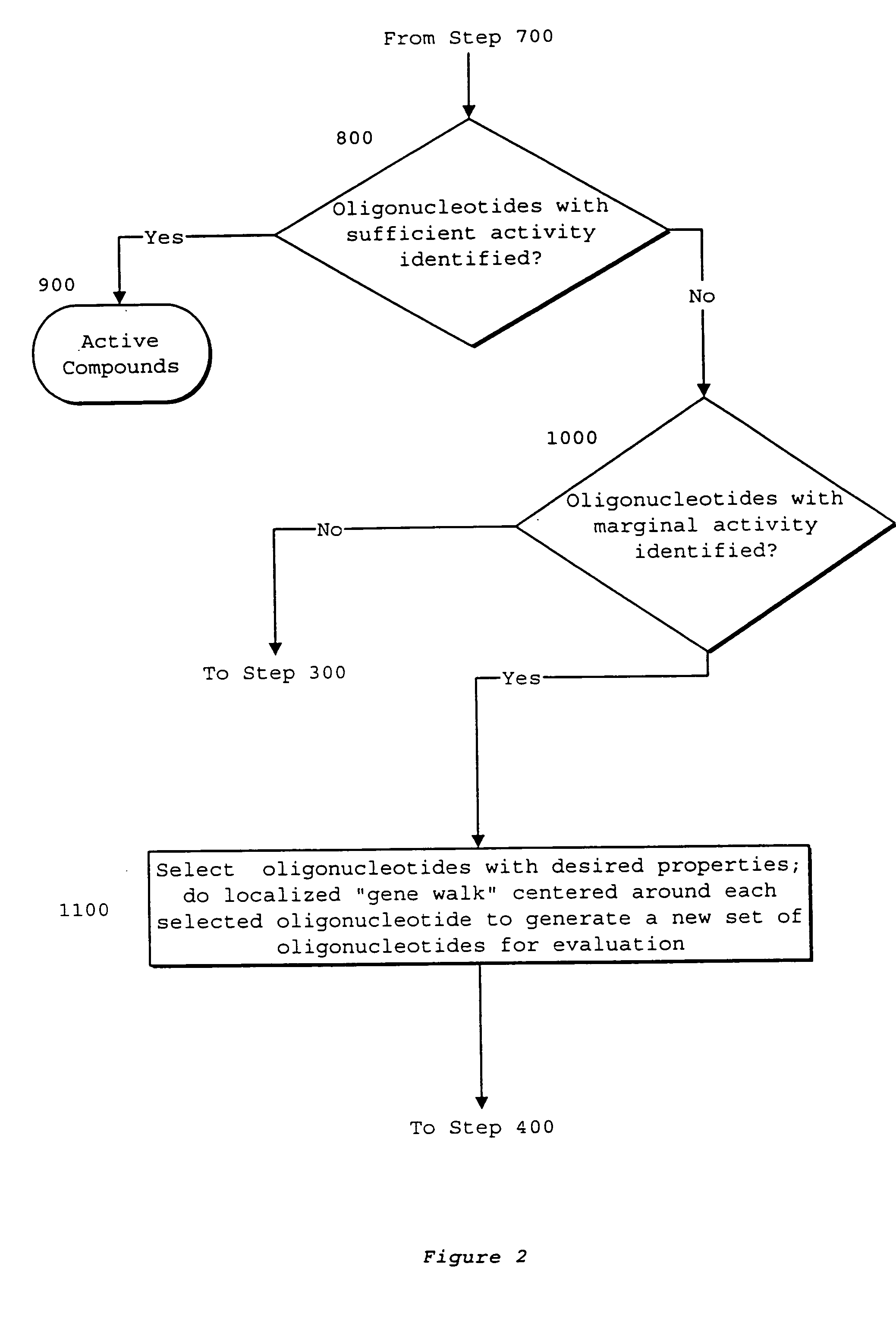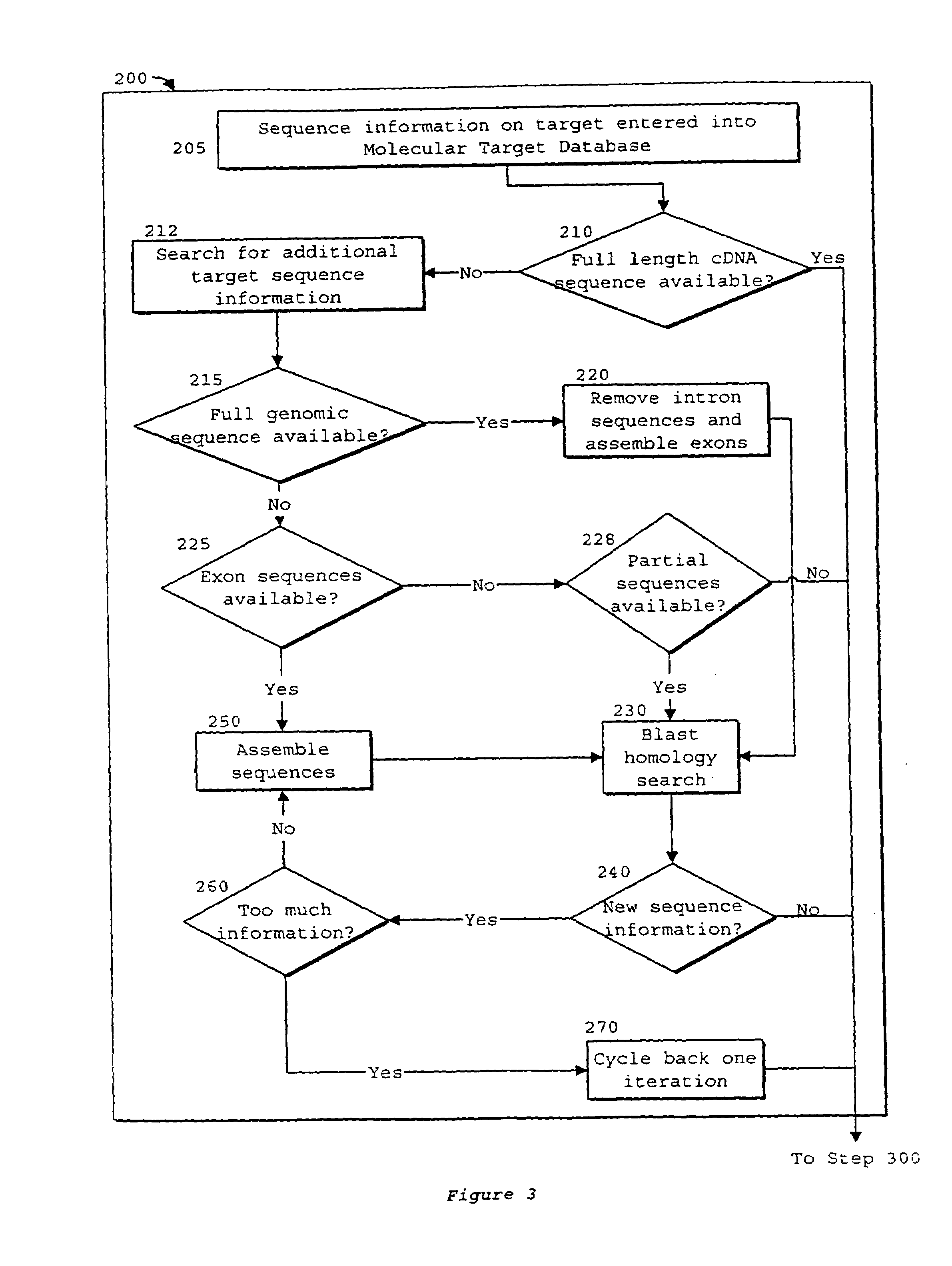System of components for preparing oligonucleotides
a technology of oligonucleotide and components, applied in the field of synthetic compound generation, can solve the problems of lead antisense compound search limited to manual synthesis and analysis of such compounds, and the conventional approach is dependent on the availability, number and cost of antisense compound production by manual or at best semi-automatic means
- Summary
- Abstract
- Description
- Claims
- Application Information
AI Technical Summary
Benefits of technology
Problems solved by technology
Method used
Image
Examples
example 1
Selection of CD40 as a Target
[0225]Cell-cell interactions are a feature of a variety of biological processes. In the activation of the immune response, for example, one of the earliest detectable events in a normal inflammatory response is adhesion of leukocytes to the vascular endothelium, followed by migration of leukocytes out of the vasculature to the site of infection or injury. The adhesion of leukocytes to vascular endothelium is an obligate step in their migration out of the vasculature (for a review, see Albelda et al., FASEB J., 1994, 8, 504). As is well known in the art, cell-cell interactions are also critical for propagation of both B-lymphocytes and T-lymphocytes resulting in enhanced humoral and cellular immune responses, respectively (for a reviews, see Makgoba et al., Immunol. Today, 1989, 10, 417; Janeway, Sci. Amer., 1993, 269, 72).
[0226]CD40 was first characterized as a receptor expressed on B-lymphocytes. It was later found that engagement of B-cell CD40 with CD...
example 2
Generation of Virtual Oligonucleotides Targeted to CD40
[0230]The process of the invention was used to select oligonucleotides targeted to CD40, generating the list of oligonucleotide sequences with desired properties as shown in FIG. 22. From the assembled CD40 sequence, the process began with determining the desired oligonucleotide length to be eighteen nucleotides, as represented in step 2500. All possible oligonucleotides of this length were generated by Oligo 5.0™, as represented in step 2504. Desired thermodynamic properties were selected in step 2508. The single parameter used was oligonucleotides of melting temperature less than or equal to 40° C. were discarded. In step 2512, oligonucleotide melting temperatures were calculated by Oligo 5.0™. Oligonucleotide sequences possessing an undesirable score were discarded. It is believed that oligonucleotides with melting temperatures near or below physiological and cell culture temperatures will bind poorly to target sequences. Al...
example 3
Input Files for Automated Oligonucleotide Synthesis
Command File (.cmd File)
[0231]Table 2 is a command file for synthesis of oligonucleotide having regions of 2′-O-(methoxyethyl) nucleosides and region of 2′-deoxy nucleosides each linked by phosphorothioate internucleotide linkages.
[0232]
TABLE 2SOLID_SUPPORT_SKIP BEGIN Next_Sequence ENDINITIAL-WASH BEGIN Add ACN 300 Drain 10 ENDLOOP-BEGINDEBLOCK BEGIN Prime TCA Load Tray Repeat 2 Add TCA 150 Wait 10 Drain 8 End_Repeat Remove Tray Add TCA 125 Wait 10 Drain 8 ENDWASH_AFTER_DEBLOCK BEGIN Repeat 3 Add ACN 250 To_All Drain 10 End_Repeat ENDCOUPLING BEGIN if class = DEOXY_THIOATE Nozzle wash prime prime Add 70 + 70 Wait 40 Drain 5 end-if if class = MOE_THIOATE Nozzle wash Prime prime Add 120 + 120 Wait 230 Drain 5 End_if ENDWASH_AFTER_COUPLING BEGIN Add ACN 200 To_All Drain 10 ENDOXID...
PUM
| Property | Measurement | Unit |
|---|---|---|
| volume | aaaaa | aaaaa |
| internal pressure | aaaaa | aaaaa |
| volume | aaaaa | aaaaa |
Abstract
Description
Claims
Application Information
 Login to View More
Login to View More - R&D
- Intellectual Property
- Life Sciences
- Materials
- Tech Scout
- Unparalleled Data Quality
- Higher Quality Content
- 60% Fewer Hallucinations
Browse by: Latest US Patents, China's latest patents, Technical Efficacy Thesaurus, Application Domain, Technology Topic, Popular Technical Reports.
© 2025 PatSnap. All rights reserved.Legal|Privacy policy|Modern Slavery Act Transparency Statement|Sitemap|About US| Contact US: help@patsnap.com



